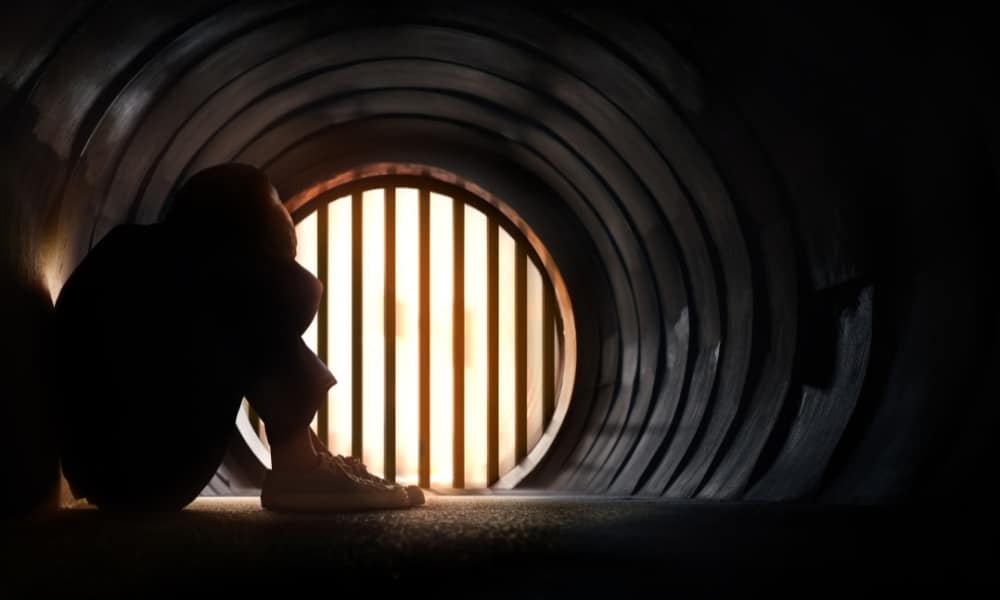Skip To Section
Addiction is a complex issue that has many different faces. It can be difficult to understand and even more difficult to talk about. But it’s important that we do both because addiction touches so many people in so many ways. Learn about the different types of addiction, how it develops, and how it is treated.

How Does Addiction Start?
Every person who develops an addiction has a unique story to tell. The majority begin with the decision to use substances just one time. In most cases, people use addictive substances to feel good, to ease awkward situations, or as a way to bow to peer pressure. Sometimes, they use substances due to curiosity. People often wonder if they’re as strong and powerful as everyone mentions. So they take one hit. Then, they take another. In time, those use episodes come closer and closer together. Soon, they can’t stop using it when they want to.
The speed of this process varies dramatically from person to person, but it might surprise you to learn how long some people abuse substances before they do finally quit.
In a study published in the Journal of Substance Abuse Treatment, researchers found that people took drugs for an average of 27 years before they stopped for good. Other studies have examined the speed at which addictions developed. They found close ties between quick transitions and:
- Race
- Gender
- Childhood abuse
- Personality disorders
- Abuse of multiple substances
Examine this list closely. You’ll see some elements related to genetics and other factors we can’t control. You’ll see some that stem from the environment and the way we’re raised. And still others were personal choices. Genes can dictate how our bodies respond to drugs, but the way we’re raised can prime us to start abuse, and our lifestyle could be a barrier to sobriety. Clearly, nature and nurture intertwine in the development of an addiction.
The Different Types of Addiction
Addiction is characterized by a compulsive need to engage in certain behaviors, despite the potential negative consequences. Each type of addiction can have devastating physical, psychological, and social effects.
The different types of addiction include:
- Alcohol addiction
- Drug addiction
- Behavioral addiction
Drug and alcohol addictions, also known as substance use disorders (SUD), are characterized by chronic substance abuse to achieve an altered state of consciousness or perception. This type of addiction often involves intense cravings for drugs or alcohol, even when there are clear negative effects. Behavioral addictions, on the other hand, involve a compulsive need to engage in activities such as gambling, gaming, or shopping. These behaviors can also have negative consequences and can become just as addictive as substance use disorders.
Alcohol Addiction
Alcohol addiction is a chronic disorder characterized by intense cravings for alcohol. This is accompanied by compulsive behaviors and an inability to control your drinking. Over time, alcohol addiction can lead to physical and psychological dependence, as well as damage several parts of the body, including:
- Liver
- Brain
- Heart
- Pancreas
Alcohol addiction typically develops over time, starting with occasional binge drinking or heavy drinking. In some people alcohol addiction may be genetic. In others it may be the result of underlying mental health conditions such as anxiety or depression.
Drug Addiction
Drug addiction is a complex and serious issue that affects millions of people worldwide. It is characterized by a compulsive desire to use drugs, despite negative consequences, including physical, psychological, and social harm.
There are many factors that can contribute to the development of drug addiction, such as genetics, environment, and personal experiences. Some individuals may be more genetically predisposed to addiction due to inherited traits. Others may turn to drugs as a way to cope with trauma or stress in their lives.
The most commonly abused drugs include:
- Opioids (such as heroin and prescription painkillers),
- Stimulants (such as cocaine and methamphetamine)
- Sedatives (such as benzodiazepines)
- Marijuana
These substances can have different effects on the brain and body, but they all share the potential to lead to addiction. When someone becomes addicted to a drug, their brain chemistry changes, causing them to crave and seek out the substance despite any negative consequences.
Behavioral Addictions
Behavioral addictions are related to activities, not substances. You can become addicted to anything that you do repeatedly that gives you a sense of pleasure or satisfaction.
The most common behavioral addictions are:
- Gambling
- Shopping
- Eating
- Sex
- Internet or phone use
Like substance use disorders, behavioral addiction is characterized by compulsive behaviors, despite negative consequences. People with behavioral addictions often feel out of control and unable to stop on their own. Treatment for behavioral addiction typically includes therapy, support groups, and sometimes medication.
"*" indicates required fields
Fill out the form below and one of our admissions team members will reach out to you:
"*" indicates required fields

How Do You Become Addicted to Drugs or Alcohol?
People can become addicted to drugs or alcohol for a variety of reasons. Some people are more at risk than others for developing an addiction.
Factors that increase the risk for alcohol and drug addictions include:
- Underlying mental health issues like anxiety or depression – Drugs and alcohol are used to self-medicate symptoms.
- Trauma or severe stress
- A genetic predisposition to addiction – People with close relatives with alcohol or drug abuse problems are more likely to struggle with addiction themselves.
- Curiosity about trying drugs or alcohol, which leads to continued use
- Exposure to drugs or alcohol at an early age
No matter the reason, addiction is a serious disease that can have devastating consequences. Addiction begins to take over people’s lives. It often leads to job loss, financial instability, and relationship problems. Substance use disorders can also lead to physical and mental health problems.
What Is the Difference Between Physical and Mental Addiction?
Anyone who has ever struggled with addiction knows that it’s multifaceted. There is a physical addiction, which is characterized by cravings and withdrawal symptoms. There is also a mental addiction, which is marked by compulsive thoughts and behaviors. While both types of addiction can be incredibly powerful, they are also very different.
Physical Addiction
Physical addiction is primarily driven by changes in your brain. When you repeatedly use an addictive substance, your brain adjusts to the presence of the drug. This can lead to tolerance, which means you need to use more of the substance to get the same effect. It can also lead to dependence, which is when you experience withdrawal symptoms when you try to quit taking drugs or alcohol.
Mental Addiction
Mental addiction is more complex. It often begins with emotional dependency. This is when you use a substance to cope with difficult feelings or situations. Over time, this can turn into a full-blown addiction. You become obsessed with using the substance and feel unable to control your impulses.
While both physical and mental addiction can be extremely debilitating, it is important to remember that recovery is possible. With treatment and support, anyone can overcome these challenges and build a life of sobriety.

Signs of Addiction
For those wondering, “what is addiction,” the National Institute on Drug Abuse defines a substance use disorder as: a chronic, relapsing disorder characterized by compulsive drug seeking and use despite adverse consequences.
Signs and symptoms of addiction include:
- Tolerance: Increasing need for larger amounts of the substance or activity to achieve the desired effect; experiencing reduced effects from using the same amount of the substance or engaging in the same activity
- Loss of control: An inability to limit time spent engaging in the behavior or using the substance despite trying to do so
- Withdrawal symptoms: Physical or psychological reactions that occur when you stop using a substance or engaging in a behavior, such as:
- Irritability
- Anxiety
- Headaches
- Fatigue
- Depression
- Restlessness
- Compulsion: An inability to resist cravings for more of the substance or activity; feeling driven to use it even if it has damaging consequences for you and your loved ones
- Neglecting other activities: Reduction in time spent on activities previously enjoyed due to excessive use of a substance or engagement in a behavior
- Relationship problems: Strained relationships with friends and family members due to excessive use of substances or participation in certain behaviors. Examples include lying to and manipulating others to get access to substances or money for them.
- Financial difficulties: Using large amounts of money to get more substances or participating in certain activities at the expense of paying bills
- Risky behaviors: Participating in reckless acts while under the influence. These may include:
- Driving while intoxicated (DWI)
- Unprotected sex
- Criminal activity
- Drug-seeking behavior: Searching out multiple doctors or suppliers to obtain drugs despite adverse consequences like:
- Loss of employment
- Social isolation
- Legal difficulties
- Craving: Intense urge for more drugs that can lead to physical risks and social harms caused by addiction
- Denial: Refusing to admit to addictive behavior despite obvious indicators that suggest otherwise. This may include lying about drug or alcohol misuse or hiding drug paraphernalia.
- Social isolation: Avoiding friends, family, colleagues, and activities because all focus is on abusing drugs or alcohol
- Inability to perform normal day-to-day tasks: Missing commitments at work, home, or school; difficulty managing responsibilities
- Disregard for safety: Engaging in risky behaviors while under the influence of drugs and alcohol; putting yourself and others in danger
- Poor performance at school /work: Showing little care towards fulfilling duties leading toward:
- Low productivity
- Lack of motivation
- Lethargy
- Poor concentration
- Memory issues
- Psychological changes: Feeling agitated without constant access to drugs or alcohol. Psychological changes may also include:
- Difficulty making decisions
- Mood swings
- Drastic changes in personality when high vs. sober
- Paranoia
- Aggression
- Delusions
What Is Alcohol and Drug Detox Like?
Alcohol and drug detox is the process of clearing your body of toxins associated with alcohol and drugs. The first step in detox is to stop using alcohol and drugs. This can be difficult on your own. Depending on the type of drug and severity of your addiction, it can also be dangerous or deadly.
Physical and psychological withdrawal symptoms vary by substance and individual but may include:
- Anxiety
- Irritability
- Nausea
- Sweating
- Shaking
- Vomiting
- High blood pressure
- Diarrhea
- Headache
- Seizures
These symptoms usually peak within the first few days of withdrawal. Medications may be used to help manage these symptoms and make detox more comfortable. In a medical detox setting doctors and nurses monitor you around the clock. They are there to attend to medical emergencies and ease discomfort.
Drug and alcohol detox is just the first step in recovery, but it’s an important one. After successfully completing detox, you’ll be better prepared to begin the next phase of treatment.

How Do You Treat Addiction?
Alcohol and drug rehab centers treat addiction with a variety of modalities. Some of these include:
- Individual therapy – One-on-one sessions between you and a licensed therapist. These sessions help you identify triggers to misuse drugs and alcohol. You develop healthier ways to cope with stress, emotional distress, and other situations that can lead to substance use.
- Group therapy – This involves multiple patients meeting together with a therapist to discuss common issues related to addiction. Group therapy is important in breaking the isolation of addiction and helping you feel supported and accountable in recovery.
- Family therapy – You and your loved ones learn how to better communicate with each other to create a more supportive environment.
- Holistic therapies – These are approaches such as yoga, meditation, massage therapy, art therapy, and music therapy. They are sometimes offered at drug and alcohol rehab centers to provide alternative forms of support. They also help you learn strategies for managing triggers without using substances.
There are different levels of care in addiction treatment. A doctor or addiction professional can help you determine what is appropriate for your individual situation.
Addiction treatment levels of care include:
- Residential treatment – Provides 24/7 care and distance from stress and triggers. You live at the treatment center and attend programming during the day.
- Partial hospitalization programs (PHPs) – Provides day treatment that is similar to residential treatment, but you live at home or in a sober living residence.
- Intensive outpatient programs (IOPs) – Usually a step-down treatment level from residential rehab or a PHP, you attend treatment on three to five days a week for a few hours each day.
- Outpatient programs (OPs) – The last step in structured addiction treatment. You are fully immersed back into work, school, and home life and attend treatment one to three hours a week.
Detox and Addiction Treatment Timeline
The length of detox and addiction treatment at a drug rehab facility varies depending upon the treatment approach and how severe your addiction is. Generally speaking, a complete program of detox and addiction treatment can take anywhere from 30 to 90 days. That said, many individuals have found successful results with shorter or longer periods of treatment.
At a drug rehab like Footprints to Recovery, the first phase of treatment is typically detoxification. This involves medically supervised withdrawal from the substance(s) you’re abusing. Alcohol and drug detox usually lasts five to seven days as your body rids itself of toxins and begins stabilizing without substances. Various medications can help manage cravings and withdrawal symptoms.
Once detox is complete, recovery work begins. Addiction treatment typically involves:
- Learning how to recognize triggers and situations that lead back to substance abuse
- Developing coping mechanisms
- Identifying underlying causes of addiction like trauma and mental health disorders
- Setting goals
- Learning new coping skills
- Discovering your strengths and vulnerabilities
- Establishing positive relationships with other people who are struggling with similar issues
This process requires time for healing through counseling sessions, as well as group therapy, where you gain insight into your own struggles against addiction along with support from peers in recovery.
Following successful completion of the rehab program, you’ll transition into aftercare services such as sober living arrangements or outpatient treatment if needed. Aftercare is considered essential for relapse prevention since it helps reinforce healthy habits while also providing ongoing support after returning home from drug rehab. Aftercare supports like individual therapy and 12-step meetings are activities that many people continue indefinitely as recovery is something you’ll always need to nurture and protect.
Addiction Recovery Is Possible
Addiction is a disease that can cause immense suffering for both the person struggling with addiction and their loved ones. If you or someone you care about is struggling with addiction, it is important to seek professional help.
At Footprints to Recovery we offer a comprehensive range of services. Our medical detox program can ease symptoms of withdrawal, while our inpatient rehab program provides the structure and support that is essential for recovery. After completing residential treatment our patients can transition into our outpatient programs, which include partial hospitalization, intensive outpatient, and outpatient rehab. These programs provide the flexibility that is often needed on the journey of recovery. No matter what stage you or your loved one is at in their addiction, we are here to help. Contact us for a free, confidential consultation.
Our admissions team is available 24/7 to listen to your story and help you get started with the next steps.








